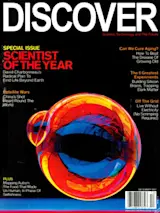Suzanne Somers is spending her golden years selling jewelry on television, writing books about dieting, and getting into yelling matches with doctors about hormones on the Larry King Show. (“You do synthetic hormones!” she barked at the male director of the North American Menopause Society.)
Her latest book, Ageless: The Naked TruthAbout Bioidentical Hormones, is a best-selling endorsement of bioidentical hormone replacement therapy for menopausal women. It has caused quite a stir, especially among doctors: Some of them wrote a letter to Crown, her publisher, warning that ideas put forth by Somers may be dangerous to women’s health. Somers, a 60-year-old sufferer of severe menopausal symptoms, holds no medical degree (“I’m a layperson who has chosen to educate myself”), but contends that the many doctors under Big Pharma’s spell may not be providing women with objective advice.
Bioidentical hormones have become a watercooler topic since 2002, when a study by ...














